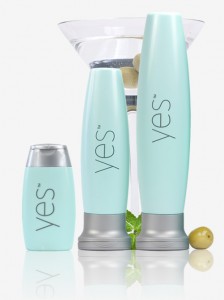Two studies about the safety of lubricant use during anal intercourse were presented last week at the 2010 International Microbicides Conference in Pittsburgh. The data from the studies has yet to be published, but there have already been several write-ups about the research , which at first blush seem to suggest that using lubricant might be found to be associated with an increased risk of STDs. As Jim Pickett, the chair of the International Rectal Microbicide Advocates (IRMA) one of the organizations involved in putting on the conference, said to me in an email, what is key is that this research be discussed and interpreted without hyperbole. If you're confused by what you've read so far, you're not alone. Let's start with the research itself.
One was a laboratory study of six popular lubricants used during anal intercourse. Actually only five of them are popular for anal intercourse (Astroglide, Elbow Grease, ID Glide, KY Jelly and Wet Platinum), the sixth (Pre) was used because it is isotonic (more on that below). The popular lubricants were chosen based on a large global survey which asked over 9,000 people about lubricant use during anal sex. Researchers did not report on which specific style of each product was used in the research, but in one write up I read that the “basic formulation” was used from each brand. (Interesting side note from my years in sex shops: the lubricant Pre is a lubricant made specifically for women trying to conceive. In addition to being isotonic, it is the only lubricant on the market that is specifically designed not to harm sperm).
The overall purpose of the study was to see if lubricant might play a role in increasing risk of STD transmission during anal intercourse. To this end, the researchers wanted to understand what, if any, direct damage lubricants might have on rectal and cervical tissue. They also wanted to see how the lubricants might impact healthy bacteria that are present in the rectum. There are, of course, many ways to damage rectal tissue. In this study the researchers focused on one particular effect which can damage the tissue in the rectum essentially by drying up cells, causing them to die and slough off. This can happen if the lubricant being used has higher concentrations of salts and sugars than are found in the skin cells it comes in contact with. The lubricant can draw water out of the cells, resulting in damage that can increase risk of infection (the science minded among you can find more detailed explanations here, here, or here).
. . .
A second study looked at the use of lubricants during anal intercourse outside the laboratory. This study included 229 men who had reported having receptive anal intercourse in the past month, and 192 women who reported having receptive anal intercourse in the past year. Participants completed a computer assisted self-interview about sexual behavior. Among other things, participants were asked about use (or non-use) of lubricants and the particular brands they used during anal sex. From that group, 302 participants also had rectal tests for chlamydia and gonorrhea. Most of the participants reported using lubricant the last time they had receptive anal intercourse. Of the 302 participants, 25 tested positive for an anal STD. More than two-thirds of the people diagnosed with an STD reported using lube the last time they had receptive anal intercourse, compared with one third of people who had not used a lube. Read another way, people who reported using lubricants the last time they had anal sex were about twice as likely to have chlamydia or gonorrhea as those who did not use lubricants.
More. . .
{ Comments on this entry are closed }










